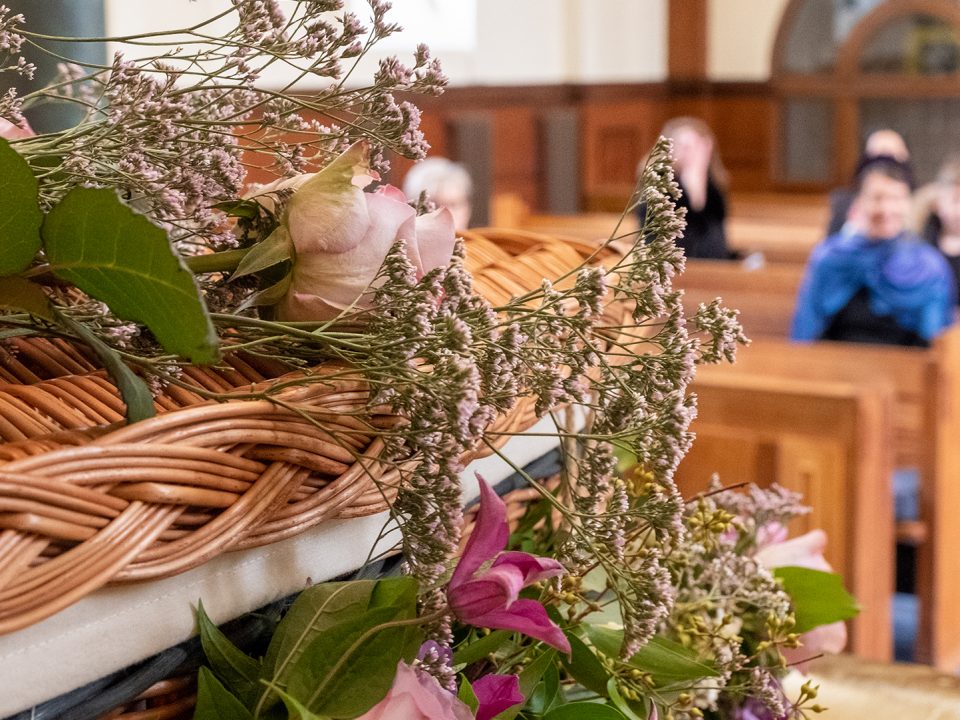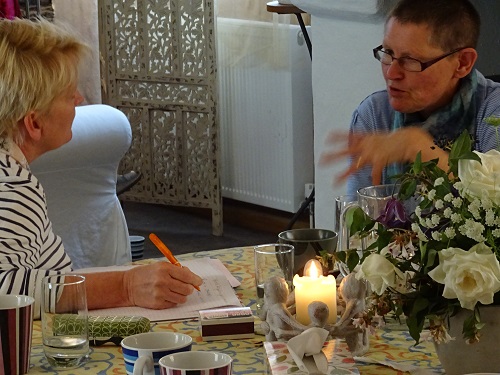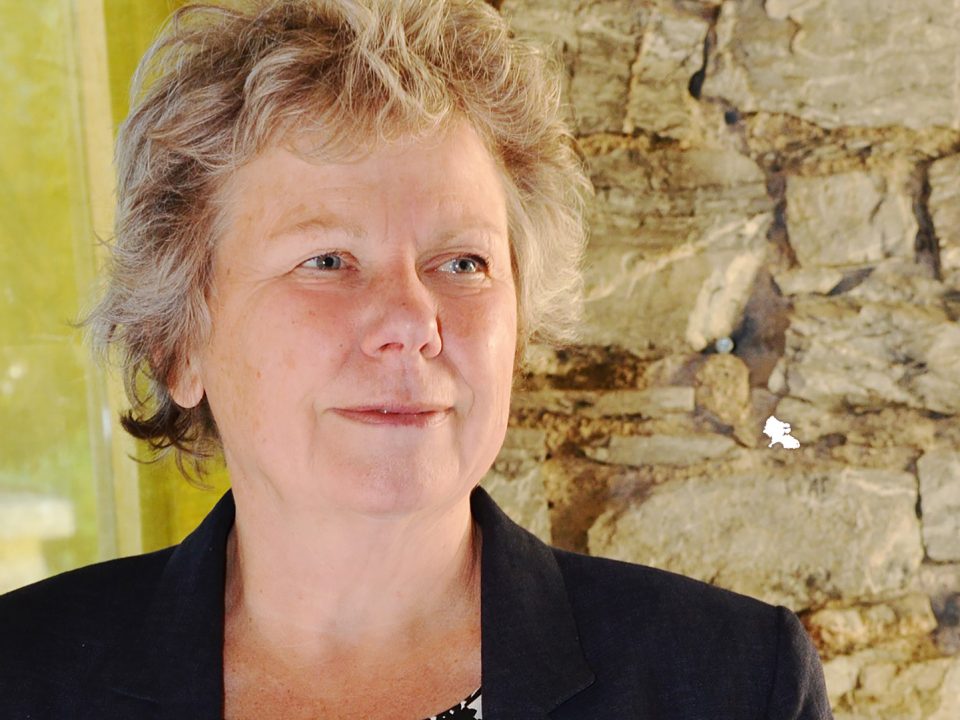Our talk to the Competition & Markets Authority
Small, local funeral directors and the future of funerals
by Jane Morrell and Simon Smith
Green Fuse Funeral Training
Heart & Soul Funerals
This is a talk given by Simon Smith to The Competition & Markets Authority (CMA) who are investigating the funeral sector. This was part of a day of presentations given by small, innovative funeral businesses to help CMA understand this end of the sector and the changing expectations of the public in relation to funerals.
Synopsis: small, local funeral directors which have a modern approach and are flexible in the way they work can serve the changing needs and expectations of the bereaved during the time between a death and the end of the funeral, giving emotional support, information on which to make decisions and helping to create a meaningful funeral. The Competition & Markets Authority is investigating the sector looking particularly at pricing and transparency issues. The findings of this (welcome) report are likely to influence the probable regulation of the funeral sector over the next few years. We are concerned that regulation might make it more difficult for new companies to be established and survive and that the large funeral establishment will use it to limit competition. It is this ‘new wave’ of funeral companies which are leading the deep changes needed to serve the needs of the bereaved for more personal and meaningful funerals in which they can participate in the more of the activities. These funerals tend to be more complex to put together, needing more time, contact with clients and collaboration. We are major trainers of this new wave.
Transcript:
When Jane Morrell started Green Fuse in 2000 we started with a vision “to improve the standard of funerals in the UK!” Yes, grandiose sounding, but with a real intent behind it after our own experiences. As things developed we knew we wanted to run an exceptionally good local funeral company to serve our community, giving our clients time and whatever they felt the needed at this tender and challenging time of new bereavement. And then in 2006, to try to have a broader influence, we began to train people to do things in the way we had been doing them, first for funeral celebrants and then for funeral directors. When we began there was no training we could have done. Most of the people who come on our courses are new to the sector. We have trained around 400 celebrants and about 50 who have been on our funeral directing courses have set up their own funeral companies.
For our own company, Heart & Soul Funerals, and our training of others through Green Fuse Funeral Training, this is our philosophy.
New role for the undertaker:
“a guide for self-organisation of the bereaved, based on creativity and improvisation” to help each client to create a funeral that has meaning in terms of the life, character and beliefs of the person who has died and the culture of their community.
There are some other thoughts that shape our work:
Most societies set about ritual performances which help make sense of the ending of a life within some wider framework” Douglas Davies, anthropology professor at Durham University
“all great faiths have precise rituals for the dead – what rituals do we offer those of no specific faith? A ritual is a journey of the heart, and, if performed with passion and devotion, will strengthen our desire and capacity to live.” James Roose Evans
“Funeral is social event and social act which families take great care to imbue with personal meaning.” Holloway report on Spirituality In Contemporary Funerals
“Funeral as social event and social act which families take great care to imbue with personal meaning.” Margaret Holloway report on Spirituality In Contemporary Funerals, Hull University.
So a funeral needs to have rituals, perhaps new ones for those without a specific faith, and it has to have meaning, to help those left behind understand the death and the context of the death better.
We were pleased to find in the CMA report “Supporting the bereaved emotionally and helping them to give meaning to the funeral was often the most appreciated aspect of the funeral director’s service.”
Douglas Davies says that our ability to make sense of and deal with death has been, and is, vital to our survival as a species. Without this we would have fallen into a slough of despair and not survived. Bereavement can become a big mental health problem and the process between the death and the funeral can play a major role. Funerals, and the process leading up to the funerals, are important.
It used to be, not that long ago, that funeral directors were undertakers, local people in the local community, who would look after the dead, make coffins, dig graves etc for a funeral. No central overheads, and done according to local customs. Now many funerals are organised by large funeral director companies with little local flavour, centralised procedures and large central overheads who want to take over the whole process as a package.
In some ways the smaller companies are close to replicating the older undertaking model. We live and work in the community. We see the process right through, usually with the same person being involved from bringing the person who has died into our care, tending the bereaved and being at the funeral. The large companies have high staff turnover, and generally the arrangers see the client for a meeting, and then someone completely different appears on the day as funeral conductor. They often have to ask the celebrant who the family members are.
A good funeral requires giving the client time to explore their relationship with the dead, put their lives into some context, think about the funeral, have time to ruminate it and let it form itself over a few days. This is how they feel supported and how they give it meaning. This does not happen when someone sits there with a tick box list and asks leading questions like “How many limousines do you need with the hearse?” A funeral need not be in the crematorium or church, only around 1 in 5 of the ones we undertake are. But this is so much more convenient for the funeral director. Quick, easy, known, no mud, quantifiable time scale, you get your hearse and team to the next one with certainty. We only do one funeral a day, so we can give it our full attention.
We are moving from the modern generation who liked standardisation to the new generation, the post-modern babyboomers, who definitely do not like standardisation. They want individuality, personal meaning. The industry, as it is structured, is not fit for purpose in delivering this. Here is an analysis of funerals undertaken in 2017/18 by us, based on 30 for under 75 and 30 for over 75s.
What post-modern clients choose
Age under 75 over 75
Cremation 45% 69%
Church or town cemetery burial 13% 17%
Natural burial 42% 24%
Biodegradable eco coffin 90% 68%
Non-traditional hearse 52% 38%
Crematorium or church funeral 10% 50%
So the younger generation are less inclined towards cremation and the crematorium, big fancy cars and wood style coffins in favour of willow and cardboard.
If they offered it, funeral directors could find themselves going to as many natural burials as cremations. They could be leaving their hearse and limousine in the garage much of the time. They could have to find themselves different and unfamiliar venues. Their business models don’t fit with this. If you have an expensive car in the garage you want people to use it. If you have a small range of coffins you can buy them more cheaply and have them in stock when needed, even though you can get most within 48 hours of ordering.
Different organisational model
The funeral sector needs to move to a new set of organisational models if it is to genuinely satisfy public demand for more personal funerals with more participation by family and friends in the process.
Client led funeral arranging process
Starting each funeral arrangement with a blank sheet of paper.
Using active listening skills to help the client express feelings and explore their ideas – it’s the client who knows what the funeral should be like.
Giving time and space to think about the person who has died and the process, not to be constrained by someone rushing through ticklists and getting the contract signed at the end of an hour.
The provision of clear and unbiased information on which to make decisions; clients need to know what is possible; there are listening techniques which allow this to happen and are the cornerstone of being a good funeral arranger or celebrant.
Client participation, opportunities to be involved in the process, perhaps with washing or dressing the body, doing tasks they want to do, bearing the coffin etc. The patriarchal ‘don’t worry we will do everything for you’ doesn’t suit everyone.
Information to make decisions not choices or packages; instead of saying “you can have a hearse and how many limousines”, much more open is “Did you know you can use any vehicle large enough to convey a coffin, provided by us or by yourselves?” Instead of “do you want the funeral in the crematorium or church?” better is “ A funeral can be held in any venue . . . . “
Transparency I heard recently that a Dignity branch refused a family to use a Bellacouche Soft Coffin for their 8 year old son because it wasn’t on their list! A funeral director in Leicester refused to provide the coffin I wanted for my mother, lying to me that it wouldn’t be acceptable to the crematorium. And they knew I was a funeral director! Honesty and transparency are
Don’t own cars – use carriage masters. If you have a fleet of expensive vehicles you are bound to pressurise people to use them. We can offer a very wide range of vehicles because we don’t own them.
No mark-ups on goods & external services – we sell everything at cost, so we don’t mind if clients want to buy a coffin on the internet, or choose a particular type. It makes no difference to our income. The big companies make a lot of money – they buy coffins in bulk for about £40 and sell them at £300+. We order each coffin as we need it – they can all be delivered in 48 hours. Again, it gives a much bigger choice.
Continuity of personnel throughout – one point of contact who sees the client on day 1 and attends the funeral builds a much better relationship and ensures good client contact. Also it leads to far fewer mistakes. The fact that Dignity gets 4 complaints in 100 is not good. I would be distressed if this was the case for us.
Put people over procedures – when procedures drive the funeral you are cutting out the things that are important – human contact, trust, discussion, empathy, meaning. Our values are Gentle, Thoughtful, Inclusive.
More time-consuming funerals in different places – it is quite understandable that funeral directors prefer to go to the known world of the crematorium where timings are strict, everything is paved etc. But this may not be what people want if they were offered it. To have flexibility of time, where spontaneous things can happen during a funeral ceremony, and the atmosphere is relaxed, makes a huge difference to the experience.
A deeper understanding of funeral purposes and rituals – there should be synergy between the infrastructure of the funeral and the ceremony. Funeral directors need to know about the elements of the whole funeral process from the time of death until the funeral is over. Then they can help clients through a rite of passage, the deep psychological states of Separation – Transition – Reintegration. The time of a death is a liminal space when the known world is broken and the future uncertain.
Openness and transparency – when dealing with vulnerable clients trust become more important. They need to know who they are dealing with (no hiding of corporate ownership) and what they are actually paying for. This requires a New pricing model without mark-ups. We charge our fees and then all the things we buy in we sell on at cost.
The large companies pay staff badly and therefore do not attract very well qualified people. Therefore they are largely incapable of doing such a multiskilled job well. There are lots of compassionate and kind people working in funerals, constrained by systems and procedures.
New training for funeral directors needs to include:
- Active listening skills to help clients explore the possibilities of a funeral
- Understanding funeral rituals and ceremony to synergise infrastructure and ceremony
- Learning facilitation and problem-solving skills over procedures
- Establishing a collaborative culture within the organisation but also with the client
- Working with the new business model
In my area the Dignity funeral directors are quoted on Beyond at twice the price of the independents c. £6000 over £3000 for a cremation. Given that so few people shop around they still get people to use them. How can they say they can’t afford to pay people better, or spend more time with clients, or give more choice, when they are making the profit margins that they are?
It is likely that regulation is coming to the funeral sector in the next few years. There is a danger that the big companies will drive the process for their own ends.
Dignity are losing market share as people become more aware of price differences. Dignity cited new start funeral directors as a major reason for losing market share in one of their profit revision announcements. They and the other big operators don’t want competition which can deliver what people increasingly want at a reasonable price. Smaller, modern companies like Heart & Soul Funerals are changing the expectations of the public. So those who are in control of regulation are going to make sure they serve their own interests. There are two trade associations, National Association Of Funeral Directors are controlled by the larger operators, and Society of Allied and Independent Funeral Directors remains very traditional in its outlook.
Starting a new funeral business is expensive and a huge personal risk. Conversion of rented premises and equipment often cost £50,000 + and you are unlikely to make an income in the first year, perhaps two. It doesn’t need to be made more difficult by regulation.
It is unusual that the large operators with economies of scale are more expensive than smaller operators but this prevails in the funeral sector because of lack of openness and transparency about pricing and working practices. It needs to stop. The public need to be more informed. The price charged needs to reflect the quality of service.
The presentations by the funeral companies today have shown the passion and dedication of the people who run them, and how much we care about the work we do and the clients we serve. This is not a normal activity. It is not a job, but a lifestyle. Who else can you call at any time of the day or night? Who will do things at weekends to help? Who will see you outside normal working hours? Who will be faced with upset, disruption, things that most people would not want to see, and try to meet the needs of each client so they feel like they are only one you are serving? The extra time we spend on each funeral should make them more expensive than the norm, but we want them to be as affordable as possible.
Funeral expectations are changing. Each funeral done by companies like ours changes expectations. On a 100 funerals a year we probably have around 4000 coming to the funerals and many of them go out thinking I would like something like that. The traditional funeral industry will not be able to cope with the change in the way it is set up at the moment, so it will have to try and limit the change.




